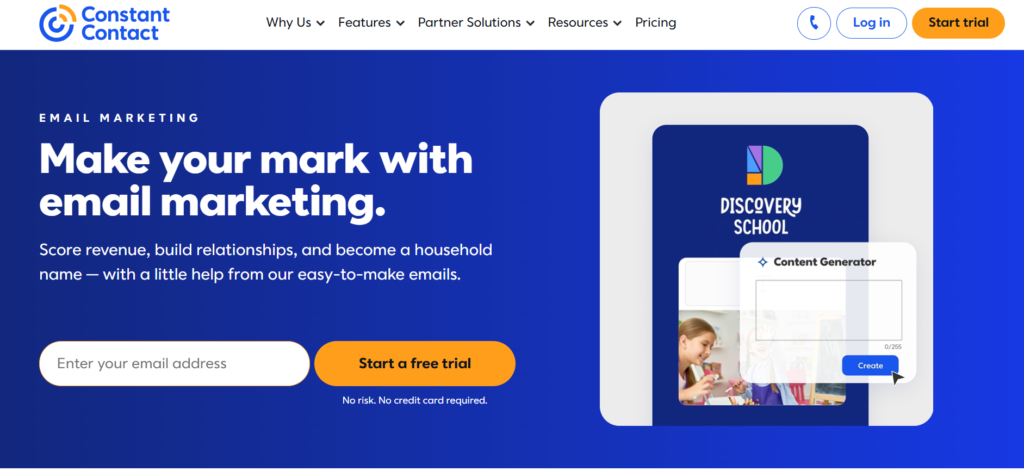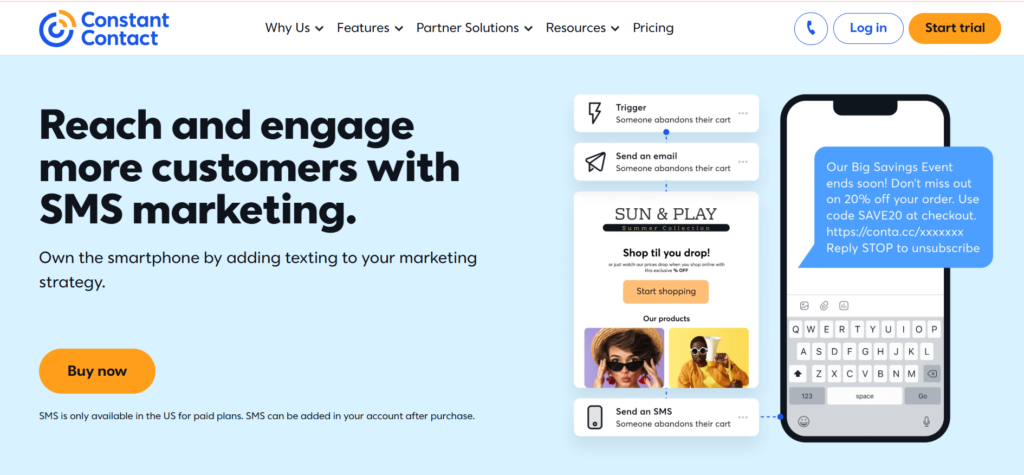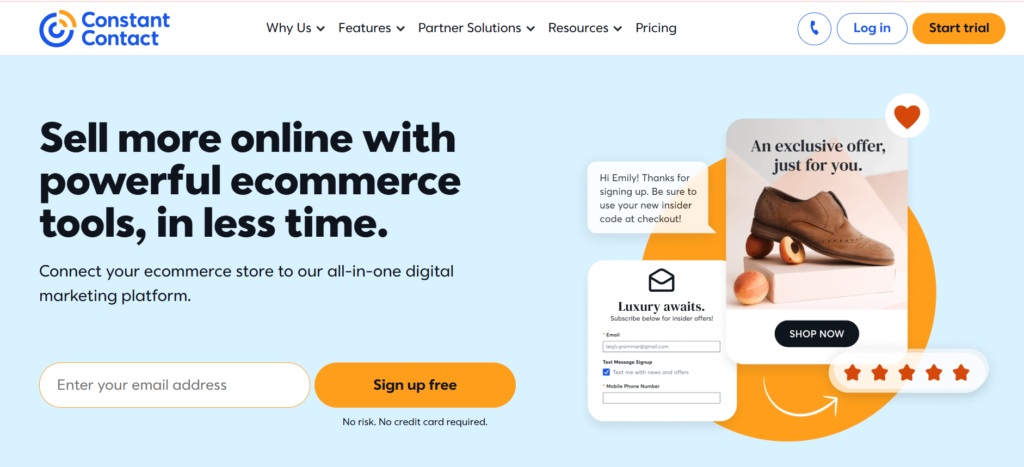Email Marketing: The Ultimate Strategy to Boost Your Business
Email marketing is one of the most effective ways to engage with your audience, build relationships, and drive conversions. It involves sending targeted emails to a group of recipients to promote products, services, or brand awareness. By utilizing email marketing, businesses can reach their customers directly, providing them with personalized content and offers that drive action.
The main advantage of email marketing is its cost-effectiveness. Compared to traditional advertising methods like TV or print ads, email marketing is relatively low-cost while delivering a high return on investment (ROI). With email marketing, businesses can reach a large number of people with just a few clicks, making it an essential part of any marketing strategy. Additionally, email marketing allows for the measurement of results, enabling businesses to track open rates, click-through rates, and conversions, which helps in optimizing future campaigns.
To run a successful email marketing campaign, it’s important to understand your audience and segment your email list accordingly. This ensures that the right message reaches the right people. Personalizing emails based on customer behavior, such as previous purchases or browsing history, can significantly increase engagement. Offering relevant content or exclusive discounts also makes emails more compelling and encourages recipients to take action. Crafting effective subject lines is equally crucial, as they are the first thing your audience sees in their inbox. A compelling subject line increases the likelihood of your email being opened and read.
Another key to successful email marketing is optimizing emails for mobile devices. A significant portion of emails is opened on smartphones, so ensuring your emails are mobile-friendly is essential for better readability and user experience. Additionally, emails should have a clear and prominent call-to-action (CTA) that guides recipients on what to do next, whether it’s making a purchase, signing up for a webinar, or downloading a resource.
Regularly testing different aspects of your emails, such as subject lines, designs, and CTAs, is important for improving performance. A/B testing allows you to compare different versions of an email to see which one resonates more with your audience. Tracking the results of your campaigns gives you valuable insights into what works and what doesn’t, enabling you to make data-driven decisions for future campaigns.
In conclusion, email marketing is a powerful tool for reaching and engaging customers. By personalizing content, segmenting your audience, and optimizing for mobile devices, you can create email campaigns that deliver results and drive business growth.

SMS Marketing: A Direct Way to Connect with Your Audience
SMS marketing is a highly effective and direct way to engage with your customers. It involves sending promotional messages, alerts, or reminders via text message to a list of subscribers. As one of the most personal communication channels, SMS marketing allows businesses to reach their audience instantly and with high open rates, making it a valuable tool for both small businesses and large enterprises.
One of the major benefits of SMS marketing is its immediacy. Text messages are typically read within minutes of being received, and studies show that SMS has an incredibly high open rate compared to email marketing. This makes SMS marketing an excellent choice for time-sensitive promotions, flash sales, or reminders about upcoming events. Additionally, SMS marketing is highly accessible since most people have a mobile phone and can receive text messages, even if they don’t have internet access.
When implementing an SMS marketing strategy, it’s important to focus on providing value to your subscribers. People are more likely to engage with your messages if they contain relevant and personalized offers. For instance, offering a discount code, providing early access to sales, or sending reminders about abandoned carts are all effective ways to leverage SMS for increased conversions. Unlike emails, which can often be ignored or deleted, text messages tend to grab the attention of recipients and prompt immediate action.
Another advantage of SMS marketing is its simplicity. The short nature of text messages forces you to be concise and get straight to the point. This makes it easier for your audience to understand your message quickly. Including a clear call-to-action (CTA) in your message is crucial, whether it’s a link to your website, a phone number to call, or a special offer code to use.
In conclusion, SMS marketing is an impactful and direct way to communicate with your audience. By sending personalized and timely messages with clear CTAs, you can drive engagement and boost conversions. Keep your messages concise, value-driven, and respectful of your audience’s preferences for the best results.

Social Media Marketing: Connecting with Your Audience Online
Social media marketing is a powerful tool that helps businesses reach and engage their target audience through platforms like Facebook, Instagram, Twitter, LinkedIn, and TikTok. With billions of active users across these platforms, social media marketing offers businesses an unparalleled opportunity to increase brand visibility, drive traffic, and foster relationships with customers in a more personal and interactive way.
One of the key benefits of social media marketing is its ability to create direct engagement with your audience. Through posts, comments, likes, shares, and direct messages, businesses can interact with customers in real time, answering questions, addressing concerns, and building a loyal following. Engaging with customers helps to humanize your brand and establish trust, which is essential for long-term success.
When using social media marketing, it’s crucial to develop a strategy tailored to your business goals and target audience. Start by identifying the platforms that are most relevant to your industry and where your audience is most active. For instance, Instagram and TikTok are highly visual platforms, ideal for brands with visually appealing products, while LinkedIn is better suited for B2B companies aiming to connect with professionals. Tailor your content to each platform, keeping in mind the type of content that performs best. For example, Instagram may be more suited to lifestyle images or short videos, while LinkedIn may require thought leadership articles or industry insights.
One of the most important aspects of social media marketing is consistency. Regular posting helps to keep your brand visible and top-of-mind for your audience. However, quality should always come before quantity. It’s better to post less frequently with high-quality content than to post too much with content that doesn’t resonate. Consistency in your messaging and brand voice also ensures that your audience knows what to expect and can better connect with your brand.

Ecommerce: Transforming the Way We Shop
E-commerce refers to the buying and selling of goods or services over the internet. It has revolutionized the way businesses operate and how consumers make purchases. With the rise of online shopping, e-commerce offers businesses the opportunity to reach a global audience, increase sales, and streamline operations—all from the comfort of a computer or mobile device.
E-commerce refers to buying and selling goods or services online, offering businesses a global reach and customers 24/7 access. It provides benefits such as lower operational costs, valuable customer insights, and the convenience of shopping from anywhere. To succeed, businesses need user-friendly websites, effective marketing strategies, and secure payment systems. E-commerce platforms must offer fast loading times, easy navigation, clear product details, and mobile optimization. Digital marketing techniques like SEO, social media, and email campaigns help drive traffic, while ensuring security is essential for protecting customer data. E-commerce has reshaped the retail industry, offering flexibility for both businesses and consumers.
Security is also a top priority in e-commerce. Since customers are sharing personal information and payment details online, it’s essential for businesses to implement secure payment gateways and ensure their website complies with industry standards to protect customer data.

Event Marketing: Revolutionizing Shopping
Event marketing is a powerful strategy that involves promoting a brand, product, or service through live events, such as conferences, trade shows, webinars, and product launches. It creates direct interaction between businesses and their target audience, allowing for a deeper connection and engagement. By leveraging event marketing, businesses can showcase their offerings, build brand awareness, and create memorable experiences for their customers.
One of the key benefits of event marketing is the opportunity for face-to-face interaction. Whether online or in person, events provide a unique space for businesses to engage with attendees in real time, answer questions, and build relationships. This personal touch often leads to increased trust and loyalty, which can result in higher conversion rates. Moreover, events allow businesses to demonstrate their products or services in a hands-on, experiential way, making it easier for potential customers to understand their value.
For successful event marketing, it’s crucial to plan and execute events that align with your audience’s interests and needs. Consider the type of event—whether it’s an in-person conference, a virtual webinar, or a hybrid event—and tailor the content to provide value. Offering insightful presentations, interactive sessions, and networking opportunities can increase attendee engagement. Additionally, providing exclusive offers or giveaways during the event can incentivize participation and drive further interest in your brand.
In terms of promotion, businesses should use multiple channels to drive awareness and increase attendance. Social media platforms, email marketing, and paid ads can help spread the word about upcoming events and generate excitement. Creating a dedicated landing page or event page with event details, registration forms, and content previews is essential for capturing leads and managing sign-ups effectively.
Another advantage of event marketing is the post-event opportunities. After the event, businesses can follow up with attendees through email or social media, sharing additional resources, offers, or event recordings. This continued engagement helps to nurture leads and build long-lasting relationships.


